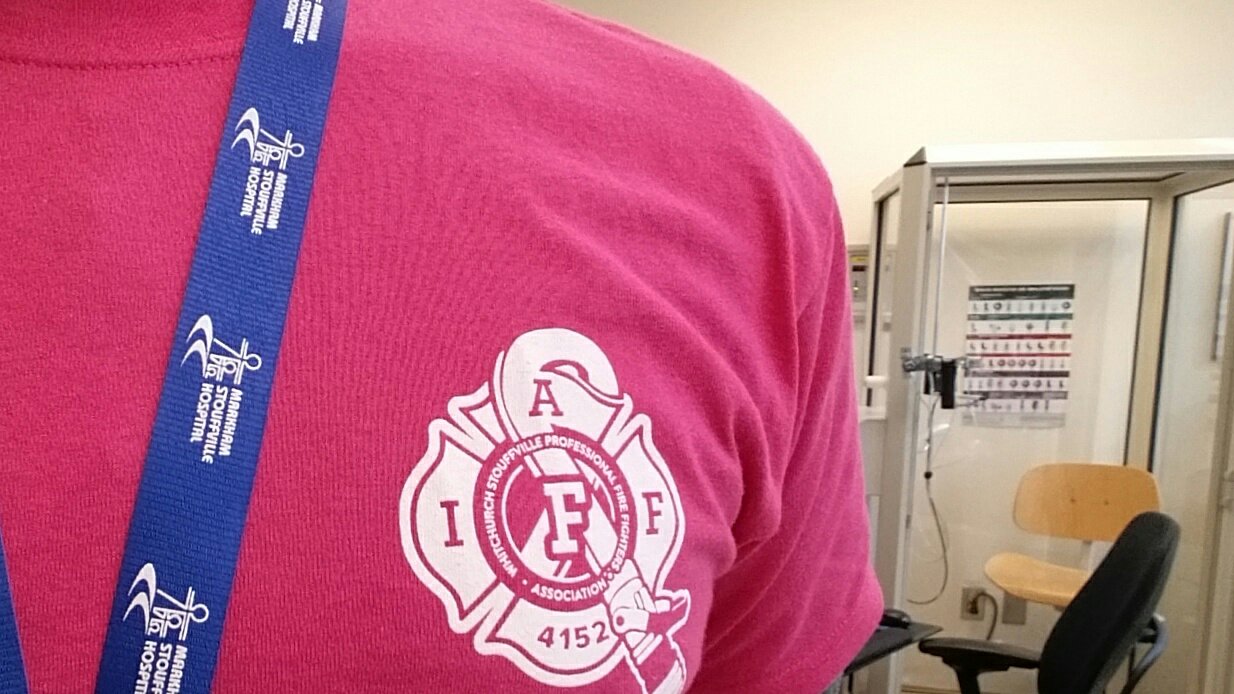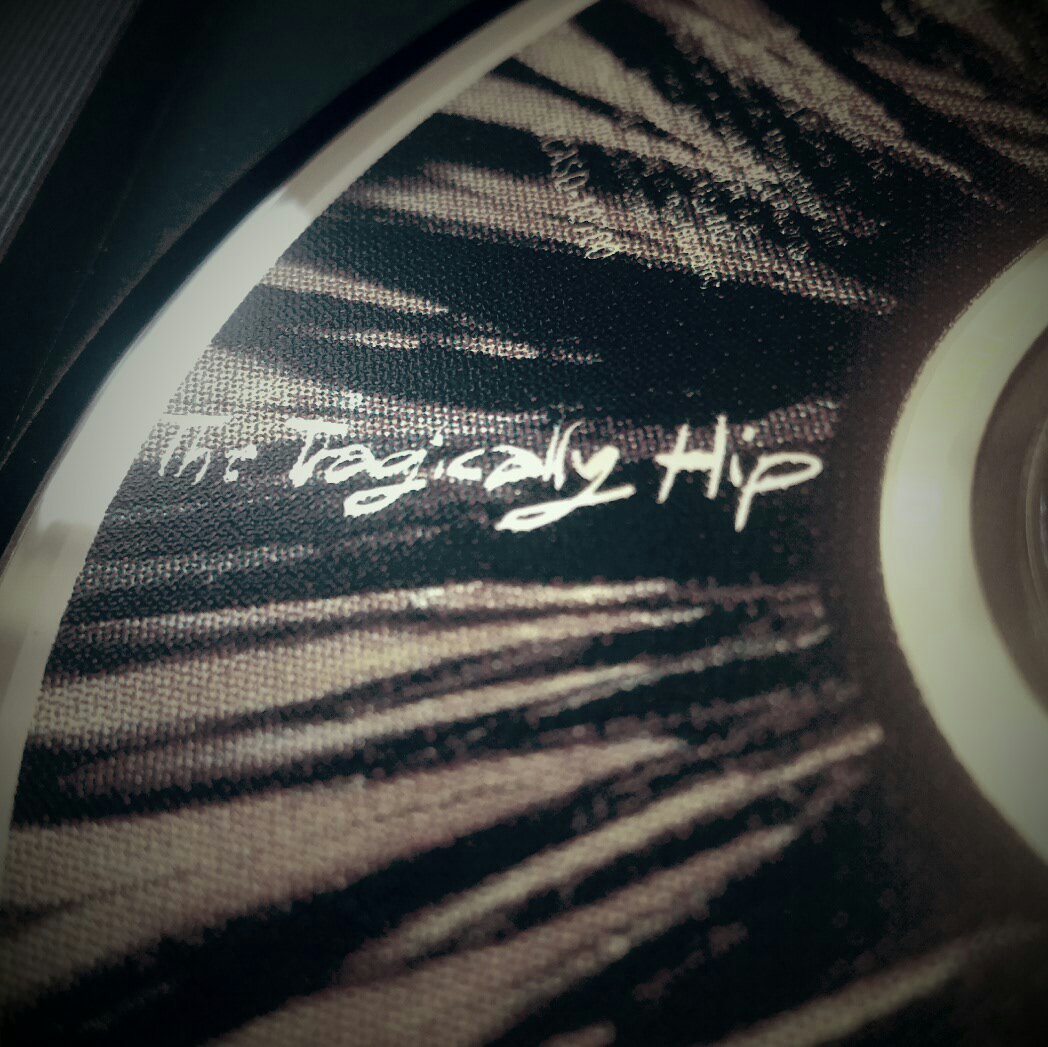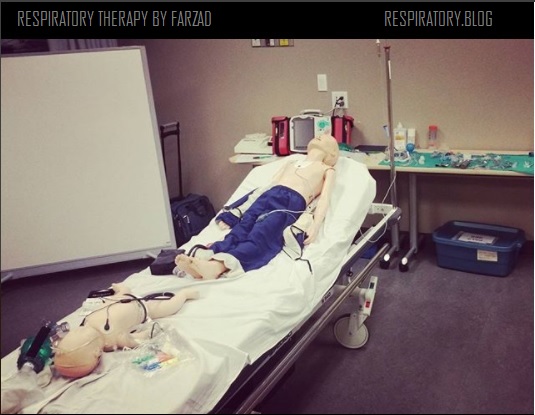
@MSHospital @WSFES
#CareEnoughToWearPink
Respiratory Therapy by Farzad Refahi
With a goal of improving the life of healthcare providers as individuals and as clinicians.

@MSHospital @WSFES
#CareEnoughToWearPink
 To share the views of an experienced RT for Respiratory Therapy Week, I reached out to Ms. Mieke Fraser. I first met Mieke when she was one of the supervising instructors for Ventilation Lab during my studies at The Michener Institute. I also ran into her at various professional development events including the latest Better Breathing and Canadian Network for Respiratory Care (CNRC) conferences. She is passionate, caring and an authentic RT. Her wisdom is built from years of experience, which includes but not limited to Mount Sinai Hospital and Bridgepoint Active Healthcare. She is also in the process of getting ready for her upcoming talk at the CNRC National Respiratory Care and Education Conference in Calgary. I asked Mieke what it means to her to be a respiratory therapist. This is what she shared with us:
To share the views of an experienced RT for Respiratory Therapy Week, I reached out to Ms. Mieke Fraser. I first met Mieke when she was one of the supervising instructors for Ventilation Lab during my studies at The Michener Institute. I also ran into her at various professional development events including the latest Better Breathing and Canadian Network for Respiratory Care (CNRC) conferences. She is passionate, caring and an authentic RT. Her wisdom is built from years of experience, which includes but not limited to Mount Sinai Hospital and Bridgepoint Active Healthcare. She is also in the process of getting ready for her upcoming talk at the CNRC National Respiratory Care and Education Conference in Calgary. I asked Mieke what it means to her to be a respiratory therapist. This is what she shared with us:
I was working with an enthusiastic and engaging RT student yesterday that brought to front of mind what it means to me, to be an RT:
First, it’s the moment of connection with a patient and then if I’m lucky, the building of a therapeutic relationship with the patient and their family. We are fortunate to be able to treat patients across the health care system. I value being part of the team that helps patients with the most fundamental actions of life – their breathing.
Secondly, because I can make a human connection with them, and then help them with something as important as their breathing, I believe I can ease their suffering (maybe just a little or in some cases immensely).
We are a highly skilled and widely experienced profession. As a brief example: in a given week, I could be optimizing ventilation for a patient in ICU, helping to protect lungs from injury and allow healing, recovery, and growth in NICU; providing treatment in the ED for patient with acute exacerbation of their chronic respiratory disease; providing education and facilitating greater self-management to that patient with chronic respiratory disease; counselling a patient towards smoking cessation; and, helping facilitate a peaceful death.
And finally, as a RT with a few years of experience, I value being able to share my experiences, my approach, my wisdom, my perspective, my skills and knowledge to the next generation of RTs. Showing them how to assess a patient, to look at the details but also see the big picture, to make the differential list, to respectfully touch during assessment and treatments, to listen and connect with our patients, and so much more …
I am proud of the valuable role we have within a multi-disciplinary team, at times overshadowed by the larger-in-numbers presence of nursing and physicians. I would have to say that those individuals – the patients and families – with whom we make that moment of connection know we are different, and maybe just a little bit special, for we intimately assist them with the most precious piece of their life – their breath. For when you can’t breathe, nothing else matters.
Mieke
Mieke Fraser, BSc RRT CRE
Thank you Mieke for taking the time to share your thoughts with us!
Happy RT Week!
Farzad ‘Raffi’ Refahi
Oct 25, 2017
[End]
Today in Canada, and the rest of the world, people are mourning and talking about the passing of Gord Downie of The Tragically Hip. While everyone was aware of his deteriorating health condition, this news is still difficult to process.
Directly or indirectly we may be involved with the palliative care of our patients. I have come across this interesting article by an ER Resident.
One Emergency Medicine Resident. One Month of Palliative Care. Ten lessons.
#ThankYouGord

Farzad ‘Raffi’ Refahi
[End]

Last weekend, October 14th and 15th, I took part in the Pediatrics Advance Life Support (PALS) course. This is a challenging and satisfying certificate which I look forward to every few years. Completion of PALS involves review and demonstration of various knowledge and skills as both a team member and as the lead. There are many areas of individual growth in this certificate as health care providers (HCP) deal with a wide age range of patients, from neonatal to young adolescent. Also, the topics covered include, but are not limited to, Systematic Assessments, Respiratory Distress and Failure, Bradycardia, Tachycardia, Cardiac Arrest, Shock (Hypovolemic/Distributive/Cardiogenic/Obstructive), and Post-Resuscitation Care. Since many health concerns of children include respiratory components, PALS offers Respiratory Therapists a good chance to review their knowledge and skill-set.
Aside from the knowledge and hands on opportunities, there is a chance to work within inter-professional teams. PALS helps HCP’s see scenarios from different angles and roles. By better understanding the roles, team members can more effectively understand, anticipate and participate in the flow of patient care.
Reviewing the systematic approach in PALS is a mindset that can also be applied in adult populations and during Rapid Response Team assessments and interventions. As a new graduate, one of my biggest challenges was attending to Rapid Response Calls. The on-call Nurse and RT would reach the bed side first and would begin the quick assessment and at times, when appropriate, would initiate the required intervention even before the attending doctor would get there. This certificate allowed me to better identify, organize and classify the available information, better narrow down the plausible causes, and provide better interventional care.
When compared to ACLS and NRP, PALS is usually not a required certificate in job postings, thus new graduates can better stand out when equipped with this qualification. Even for RTs who have a few years of experience, completing this certificate can demonstrate a willingness and drive to learn and to improve.
This certificate is a useful asset and thus it is my personal recommendation to RTs and other HCPs to take their PALS.
Farzad Raffi Refahi
Oct 18, 2017
[End]